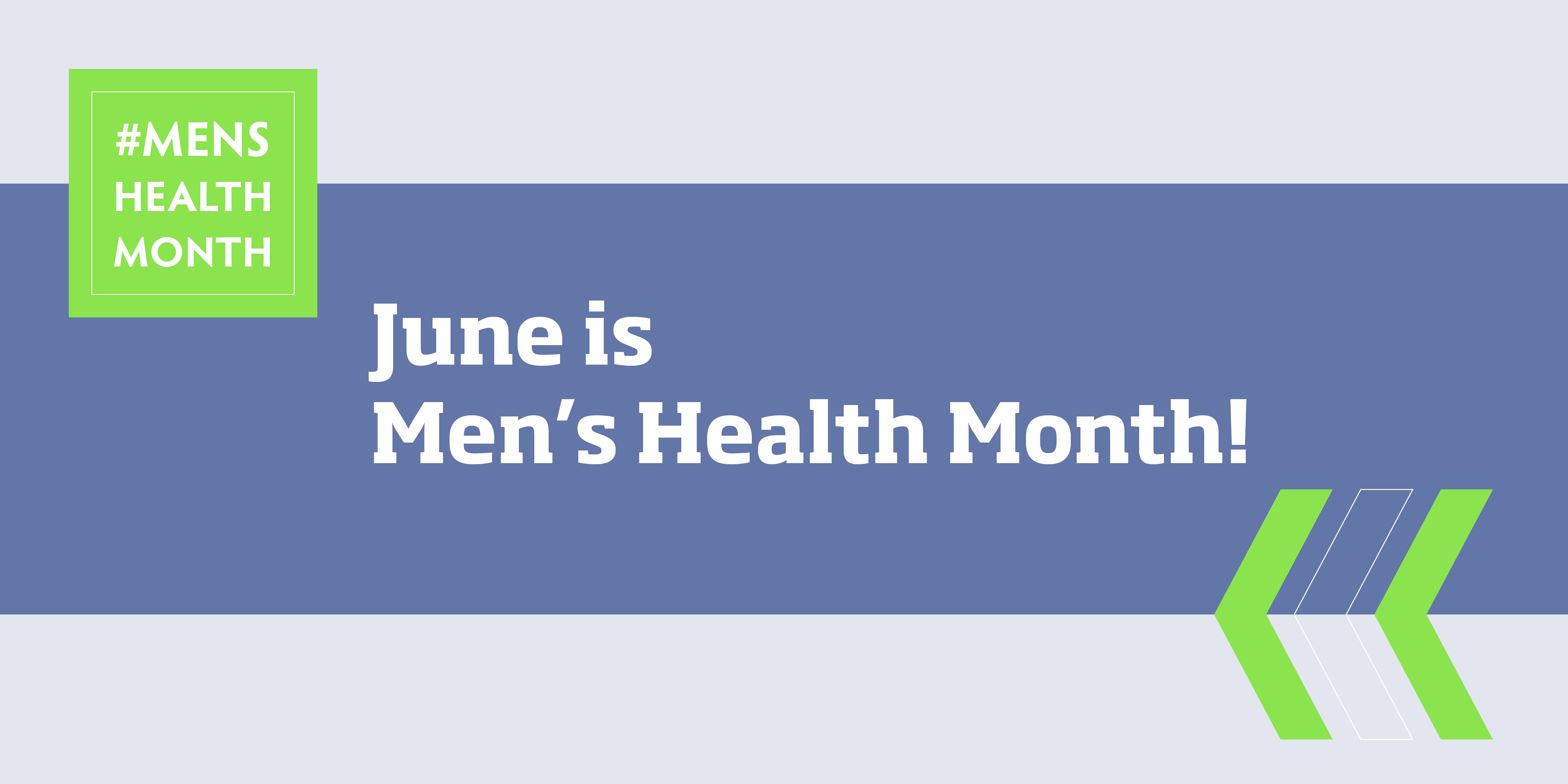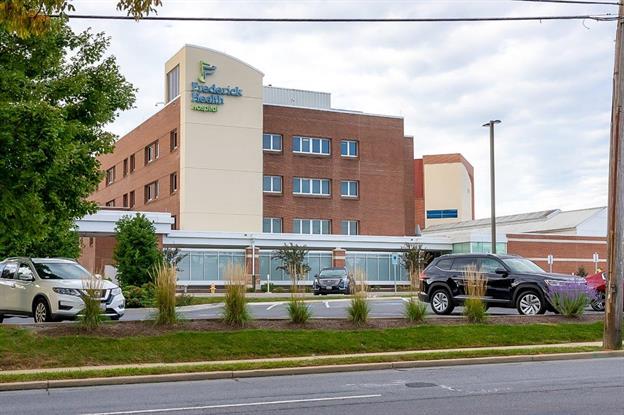Awareness, Education & Prevention Are Key for Men's Health
- Category: Healthy Living, Frederick Health Services
- Posted On:
- Written By: FMH
Awareness, Education & Prevention Are Key for Men’s Health
Did you know about 12 percent of men ages 18 and older are in fair or poor health, according to the Centers for Disease Control and Prevention (CDC)? For men, the leading causes of death are heart disease, cancer, and accidents or unintentional injuries. Even more alarming, women are 100 percent more likely than men to visit a doctor for annual exams.
Now’s the time to remind all men in Frederick County to take steps to be healthier. This June, Frederick Regional Health System is celebrating Men’s Health Month to support all men in our community by encouraging healthy habits for themselves and by making healthy choices.
What is Men’s Health Month?
Each year during June, Men’s Health Month is celebrated across the country by enriching men’s health and wellness. The month focuses on screenings, health fairs, media appearances, and other health education and outreach activities. Anchored by a Congressional health education program, Men’s Health Month heightens the awareness of preventable health problems and encourages early detection and treatment of disease among men and boys.
Remind the Men You Love to Get Regular Checkups Early and Often
Seeking regular medical advice and early treatment for disease and injury are crucial for better health. Compared to women, men are more likely to smoke, drink, and put off regular checkups. Conditions such as prostate cancer and low testosterone are issues only men face.
Many men are at high risk for severe diseases like colon cancer and heart disease, too. Every 40 seconds, someone in the U.S. has a heart attack, and many of them are men. Significant signs of a heart attack in men include:
- Chest pain or discomfort
- Feeling weak or light-headed
- Pain or discomfort in arms or shoulder
- Pain or discomfort in the jaw, neck, or back
- Shortness of breath
Depression is one of the leading causes of disease or injury worldwide for both men and women. In addition to regular checkups, encourage the men in your life to seek help if they’re feeling any of these signs of depression:
- Feelings of hopelessness, tiredness and decreased energy
- Persistent sadness and grumpiness
- Thoughts of suicide
If you or a man in your life might be suffering from depression or is in crisis, please seek help immediately. Call 911, visit a nearby emergency department or your healthcare provider’s office, or call the National Suicide Prevention Lifeline’s toll-free, 24-hour hotline at 1-800-273-TALK.
These conditions, while serious, are much easier to treat when they’re detected early. Men can prepare for doctor’s visits and check-ups by learning more about the preventive tests and screenings they need, understanding their family health history, and talking to family members about their health history.
Be Proactive
It’s never too early to prioritize your health and wellness. Men in their early 20s, for example, may feel they’re in the prime of their lives and nothing can stop them. Meanwhile, older men might feel it’s too late to make meaningful changes. This couldn’t be further from the truth.
It’s never too late or too early to take control of your health. Regardless of your age, frequent checkups and screenings should be a high priority. There are some checkups, like getting your blood pressure checked, that all men should have yearly, no matter their age. There are, however, certain checkups and screenings that some men should prioritize over others depending on their age.
In Your 20s and 30s?
If you’re a man in your 20s or 30s, schedule a physical exam every three years. Blood tests and urinalysis, which screen for illnesses and diseases like diabetes and kidney dysfunction, should be done every three years as well. A TB skin test is recommended every five years, although more frequent testing may be required depending on your profession.
A rectal exam to screen for hemorrhoids, lower rectal problems, and colon and prostate cancer should be a priority every year. Skin self-exams for lumps and changing moles, including on the mouth for cancerous lesions, should occur monthly. Men in their 30s should receive an EKG test, which checks the electrical activity of your heart for any problems.
In Your 40s?
As a man in your 40s, you should begin getting a physical exam every two years. Discuss getting a chest x-ray with your physician, especially if you’re a smoker over the age of 45. A testosterone screening may be required if you’re suffering from low testosterone symptoms. A hemoccult screening, which screens for the first indications of polyps or colon cancer, should be scheduled once a year.
In Your 50s and 60s?
If you’re a man in your 50s or 60s, getting a yearly physical exam should be your top priority. Colorectal health screenings, which screen for colon cancer at its earliest and most treatable stages, should be done every three to four years. Men in their 60s should discuss bone mineral density tests with their physicians to test their bone health.
These are just a small sampling of checkup and screening guidelines for men. The complete list for your age group is available here.
Set an Example with Healthy Habits
We only get one body, and we can’t take it for granted. This month is the perfect time to remind all men to take steps to be healthier, but they don’t have to do it alone. Whether it’s you, your husband, partner, dad, brother, son, or friend, you can support them by having healthy habits yourself and making healthy choices. To learn more or to schedule an appointment, contact Frederick Regional Health System today.


